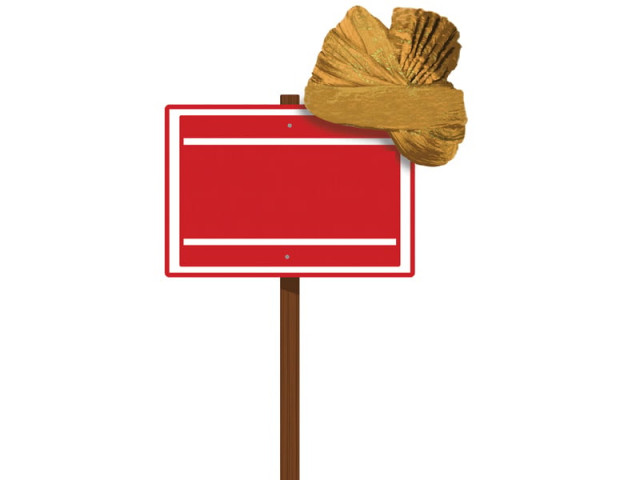Paperless pagri system still exists in old city areas
Hindus introduced the concept during the British Raj to keep ownership of their property.

Paperless pagri system still exists in old city areas
A small shop about six feet wide in one of the many congested bazaars of Saddar may be worth millions of rupees on paper. But in all likelihood, the shopkeeper simply cannot sell it – neither does he own the place, nor is his status that of an ordinary tenant. There is a fair chance he is occupying the premises on a “pagri” basis.
Simply defined, it means a landlord letting a ‘tenant’ use his property – forever in most cases – after receiving a “pagri,” an amount that is a little less than the prevailing market price. In return, the tenant pays a nominal monthly rent and stays on the premises for years on end without any fear of eviction. The property remains in landlord’s name and he continues to pay taxes on it.
“There’s no written agreement. I didn’t sign any papers when I set up this little booth in 1958,” said Muhammad Kamil, 75, a cloth merchant, while talking to The Express Tribune.
“Ownership changed three times in the past 54 years. None of the four landlords bothered me ever. It’s considered dishonourable to be a troublesome landlord in the pagri system,” Kamil said.
He acquired the 6-foot by 10-foot cubicle in Zubaida Mansion on main MA Jinnah Road at a pagri of Rs14,000 with the initial monthly rent of Rs75. Five decades on, Kamil pays Rs1,450 a month for his cubicle whose market price, according to a real estate dealer, should at least be Rs5 million.
There are six cubicles of different sizes on the ground floor of Zubaida Mansion. All of them are rented out on a pagri basis.
According to Muhammad Aqil Advocate, who teaches law at Islamia Law College, the pagri system originated in Mumbai with the rise of the Hindu mercantile class under the British Raj. “The practice of renting out property at pagri became popular in Karachi and Hyderabad because these were the two main cities of Sindh, which was part of Bombay back in the day. That’s why pagri doesn’t exist anywhere else in present-day Pakistan.”
By renting out property at a negligible monthly rent while receiving roughly 80% to 90% of the market price as an upfront fee, Aqil says Mumbai’s ‘banyas’ ensured that they made instant profits and simultaneously kept property rights for their next generation.
He says pagri exists only in old city areas, which had the population of 300,000 at the time of partition. “A quick way to confirm whether pagri existed in an area is to look for ‘quarters’ in its name. Clifton Quarters, Rambagh Quarters, Ranchor Line Quarters, Lyari Quarters, Kharadar Quarters, etc, were part of the old city,” Aqil said.
Talking to The Express Tribune, Muhammad Shafiq Advocate, who specialises in civil cases, said the pagri system had no legal value whatsoever. “A court ruling by Justice Sajjad Ali Shah had declared pagri a private dealing between two parties,” he said, adding there had been complaints of late by tenants and landlords, who accused each other of breaching the verbal agreement.
“In the past, businessmen always kept their word. These days, however, we hear many complaints.”
Sitting cross-legged in his tiny shop, Kamil laughed off the idea that the landlord might decide to evict him one day. “Why would he (landlord) ask me to leave? At most, he’ll increase the rent to Rs3,000 a month? I’ll pay that right away.”
Published in The Express Tribune, January 7th, 2012.



















COMMENTS
Comments are moderated and generally will be posted if they are on-topic and not abusive.
For more information, please see our Comments FAQ